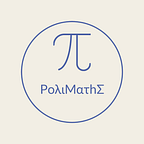With so many options to choose from, it can be hard to figure out which book is most suitable for you to learn calculus from. You’ve come to the right place! We’ll find the book that is most suitable for you.
These aren’t given any any particular order, each of them have their costs and benefits (see the chart at the end of the post).
1. Calculus: Early Transcendentals by James Stewart
This is perhaps one of the most famous books ever written, an international bestseller which is most likely on your reading list if you’re taking a university calculus course. It’s written in a very easy and intuitive style and has a ton of exercises.
However, if you’re looking for a proof-based approach or wanting a deeper understanding of the concepts then this book is probably not for you.
2. Calculus by Michael Spivak
Spivak presents calculus as “the first real encounter with mathematics” and doesn’t just teach you the concepts of calculus. In exchange for some more effort, the Spivak reader will come away with an understanding of why calculus is the way it is, and will know how to read and write the various styles of mathematical proofs. It’s blurring the line dividing the fields of calculus and real analysis.
If you’re planning on continuing your studies of mathematics, I would recommend this book!
3. Calculus for Dummies by Mark Ryan
Do you have a hard time learning maths? This is the book to change that! The explanations here are so clear and intuitive that it feels like the author is personally holding your hand as you move through the book. It doesn’t cover as much content as the other books in this list, but it sets down strong foundations for further study.
I read this book when I was in Year 8 and it was a breeze!
4. The Calculus with Analytic Geometry by Louis Leithold
If you’re into the classics, this is the book for you. It completely changed the method of teaching calculus and its legacy is clear with later books such as Stewart. It’s little old, but explanations are still very clear and it contains a lot of super helpful images.
It’s quite proof-heavy but no harm is done by skipping some of them in the reading.
5. Calculus: An Intuitive and Physical Approach by Morris Kline
If you don’t like dealing too much with just abstract mathematics and prefer having applications to go with the concepts, give Kline a try. It’s considered to one of the best calculus textbooks ever written and gives a feel to the why of calculus without having to adhere to the strict laws of rigour as by Spivak or Leithold.
Take-home message
Everyone learns in a different way and learn calculus for different reasons. To summarise the results, take a look at this table with ratings 0–10 and decide which book is best for you.
Thank you for reading and good luck with your calculus studies!
